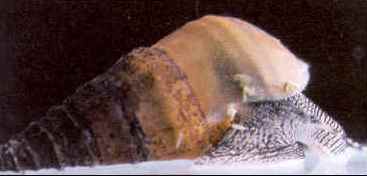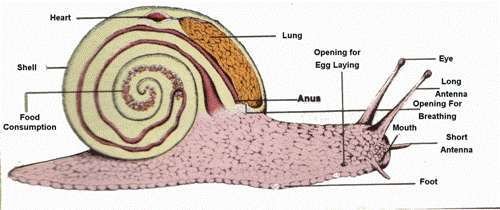WELCOME!
Hello and welcome to my website. This site is part of
a class assignment and dedicated to the freshwater sharp horn
snail, Pleurocera acuta. Within the site you can
start learning about the scientific
classification of Pleurocera acuta. I will
also be covering the external body structures
of Pleurocera acuta and related organisms,
where it lives, different
digestive organs,
reproductive practices,
life history and how
Pleurocera acuta interacts
with other organisms.

Did you know...
Snails have no sense of hearing!
Instead they use sight and smell to relate to their environments
(Woodland
Park Zoo, 2011).
Snails secrete slime on the surfaces
they touch to protect their bodies from chemicals, sharp protrusions, and
other harsh ground types. This
slime is also used as a type of suction to hold the body to different
surfaces.
It is not uncommon to see snails in
precarious sideways or upside-down positions for this reason
(Hickman,
2009).
Snails are part of the family
Gastropoda which means "stomach-foot" in Greek because of their muscular
foot
used for locomotion
(Woodland Park
Zoo, 2011).
Snails can be hermaphroditic, meaning
they contain reproductive parts of both male and female. To reproduce,
hermaphroditic snails both give and receive sperm to
complete fertilization (Woodland Park Zoo).
Snails undergo protostomal development, meaning
that their mouth develops before their anus (Hickman,
2009).
Snails can be nocturnal, meaning they
are most active at night (ARKive, 2011).
Most snails are herbivores eating
decaying material, but some are carnivorous. One specific example is
the
Geographic Cone Snail that contains
strong enough venom to paralyze its prey instantly (National Geographic).
Snails to through estivation,
hibernation in the summertime, because the conditions are unfavorable
(Hickman, 2009).
To start learning about Pleurocera acuta visit... Classification.
More Links:
http://MultipleOrganisms.net
